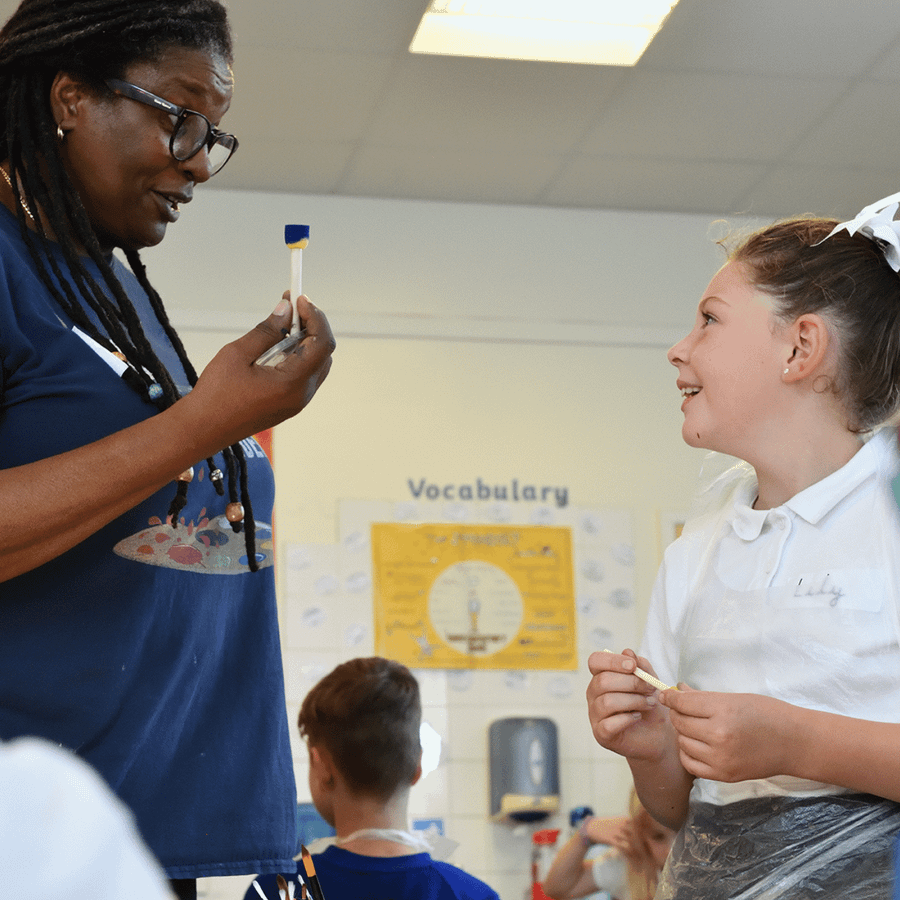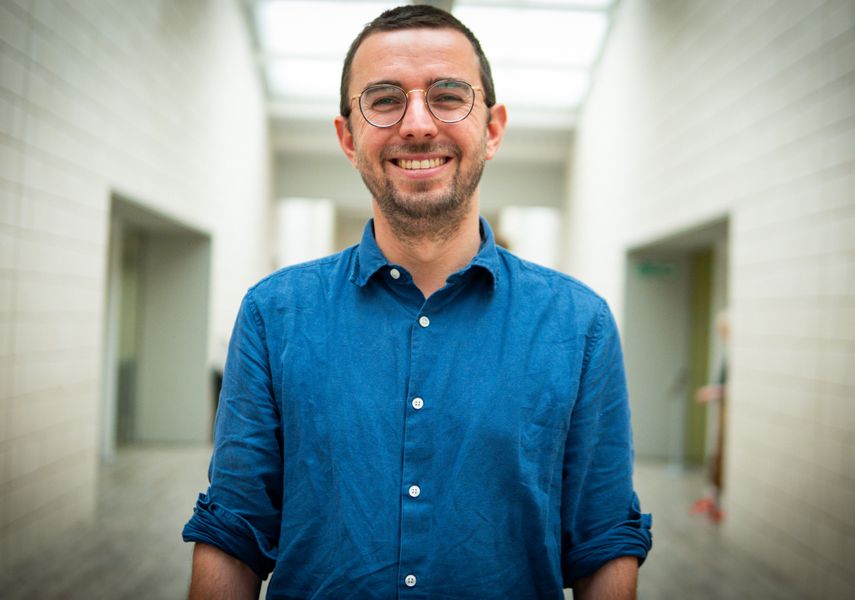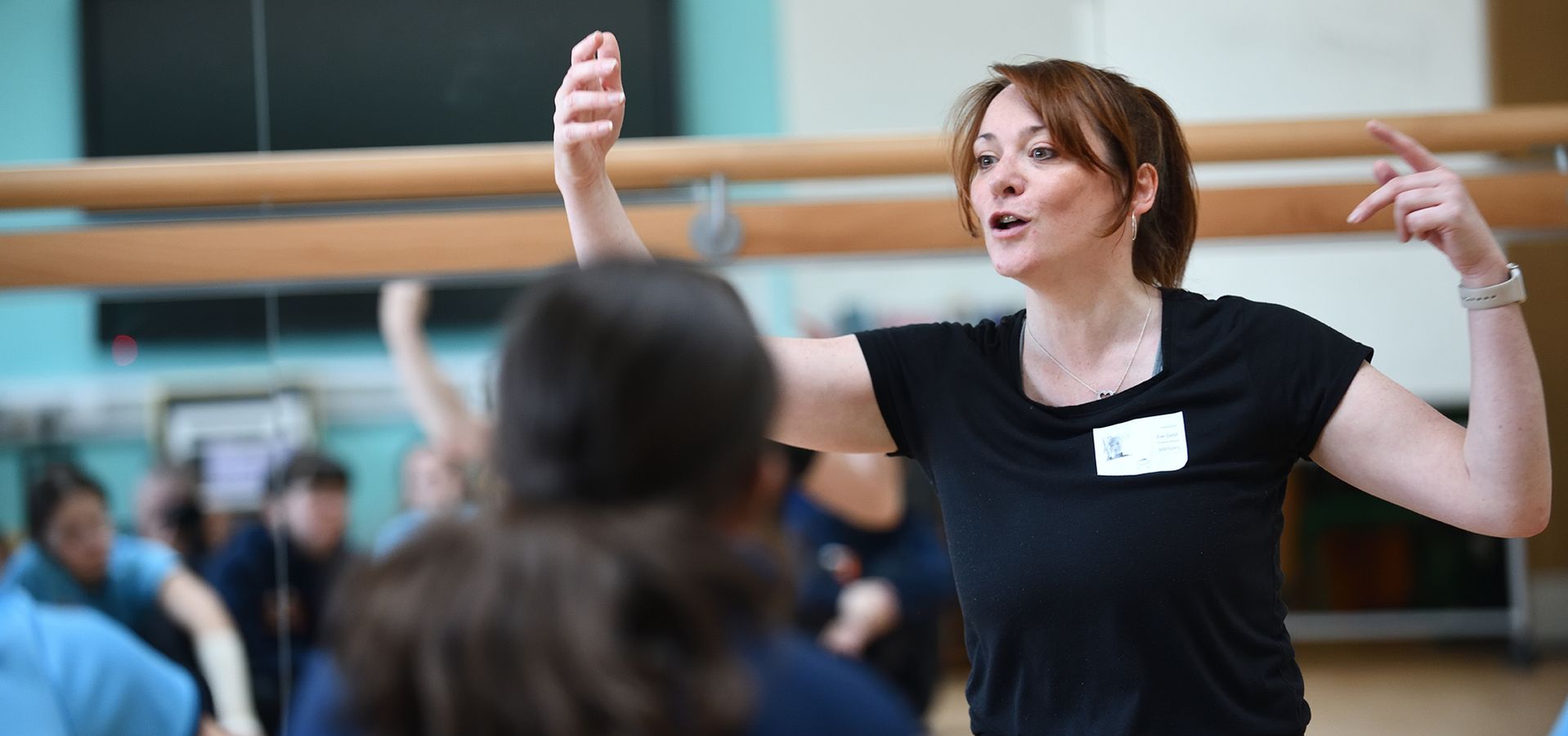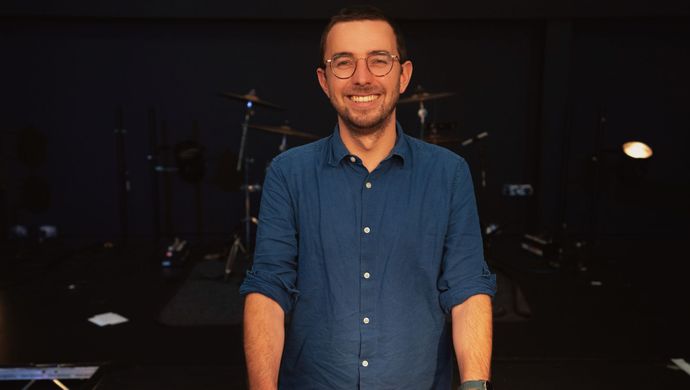
Creativity, curiosity and professional artists in schools
Insights from Curious Minds’ PhD partnership with Goldsmiths
Friday 15 August 2025
Our doctoral researcher is Saul Argent, and his goal is to explore not just the impact Teaching Artists deliver but also how they achieve it. Over the next 3 years, he’ll be using the lens of psychology to explore how artists create the pedagogical circumstances within which young people develop character and qualities such as curiosity, creativity, identity and belonging.
As Saul moves through his doctorate, he has kindly agreed to share insights from his research with us in the form of a series of short blogs, musings and provocations, which we’ll publish periodically on this website. In this first instalment, he explores his hopes, plans and motivations for the study.

Hello, my name is Saul, and I am not an artist.
Why am I starting off by telling you what I'm not rather than what I am?
Because much of my life connects to artists. I've worked with artists for 10 years, exploring various ways in which they can use their practice to inspire and engage children and young people. I've taken artists to schools, museums and youth organisations, put on public festivals and events. I've not kept count, but I must have worked with 1000 artists: painters, authors, film makers, sculptors, illustrators, musicians, poets, photographers, makers, actors, dancers…
Artists represent something magical to me. Their drive to create, their capacity to imagine, their hunger to explore and learn.
I've seen how transformative it can be to bring artists together with children and young people.
How eyes light up, brains begin ticking, cogs whirring. I've seen students in classrooms who are normally silent (according to their teachers) put their hand up again and again to ask questions to an author who is visiting, and whose book they have read. I've seen children begin a session by pushing boundaries, on the verge of being kicked out, end it in blissful silence, immersed in drawing a comic.
This isn't just noticed by me. Talk to any artist, anyone in a cultural education organisation, or in a school that values creativity and they will tell you that working with artists is something that is good for everyone - but particularly so for those students who are disengaged, who struggle with the formalities of school, who have additional needs or behavioural difficulties.
It's backed up by research. A recent study using a huge set of data from nearly half a million pupils in Boston schools over 11 years found particular benefits of an increased arts offer to pupils with lower test scores, with additional needs, or from ethnic minority backgrounds (Bowen & Kisida, 2024).
And mention of research brings me round to saying what I am, rather than what I am not.
In September 2024 I started my PhD.
Doing a PhD wasn't particularly on my life plan - not that I really had one. As with many people in the cultural sector, I'd happily fallen from one project or job to the next for a decade. But when an opportunity came up to spend four years learning about the work I have been doing (which, I believe, has enormous value) I couldn't turn it down.
While there are many people who believe in the importance of creative education, and more specifically artists working with schools, there is very little research showing what the value of it is. Even less that does so empirically, using data from artist-led projects to show the impact on children and young people, teachers, and the wider school community, objectively and accurately.
That's what I'm going to try to do with my PhD. I'm hoping what I find will be useful to the sector... that it can help us get better at this work and argue the case for more investment in it from schools, funders and the government.
I will be using these blogs as a way to communicate some of what I learn in a way that I hope is useful to you, whoever you are.
Maybe you are an artist interested in finding out more about the work you and others do in schools? Maybe you work for a cultural organisation and can use this to write a funding bid or design a project? Maybe you are a teacher who wants to think of ways to bring creativity into the classroom?
In future blogs, I will write about how psychologists have investigated some of the possible outcomes of artist-led projects, such as creativity and curiosity. I will look at the history and current context of artists in schools in the UK. And I will begin to share the research methods I will be using and, when I have them, my findings.
I’m looking forward to sharing my journey with you.







